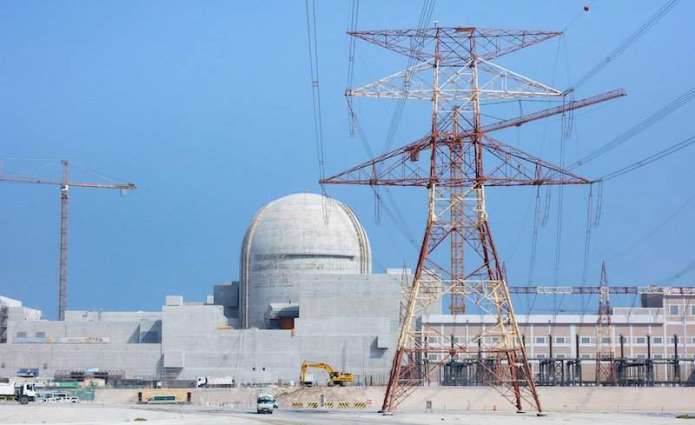The UAE's permanent representative to the International Atomic Energy Agency (IAEA), Hamad al-Kaabi, in an interview with Sputnik has dismissed safety concerns over the country's first nuclear power plant (NPP), which is expected to be launched soon, saying that everything was in line with the highest industry standards
MOSCOW (Pakistan Point News / Sputnik - 19th February, 2020) The UAE's permanent representative to the International Atomic Energy Agency (IAEA), Hamad al-Kaabi, in an interview with Sputnik has dismissed safety concerns over the country's first nuclear power plant (NPP), which is expected to be launched soon, saying that everything was in line with the highest industry standards.
On Monday, the UAE's nuclear watchdog issued an operating license for the first unit of the Barakah NPP, allowing its operator to begin preparations for the commercial launch. On Tuesday, Nuclear Consulting Group head Paul Dorfman said in an interview with German newspaper Deutsche Welle that the NPP was not safe enough and that Europe would never allow such a plant to be built.
"We made the reactor as safe as possible from certain emergency situations. So it is strange to talk about any risks: the highest standards of the nuclear industry were used in the plant's construction," al-Kaabi told Sputnik, commenting on Dorfman's claims.
The plant's third-generation reactor was designed by the Korea Electric Power Corporation (KEPCO) and complies with advanced nuclear safety standards, including those used in the United States, the official noted.
"In addition, the first reactor was built on the same design as the Korean reactors. South Korean experts were engaged in its development for several years, taking into account the climatic realities of the area, the average temperature and the need to cool the reactor. And a certain part of the designs was developed specifically for the work of nuclear power plants in the Emirates," he added.
Al-Kaabi also said that transportation of nuclear waste via the Persian Gulf carried no risk of emergencies or explosions.
"After all, we are taking the highest and most advanced security measures in transportation of nuclear waste. The materials that are being sent to the reactor are safe. They are being transported all around the world, and in completely different ways. So the UAE does not endanger the Gulf region," he said.
Over the past 10 years, the IAEA has sent 11 delegations for all kinds of inspections of the reactor and the plant's security systems, and its reports are available in public domain, he added.
Barakah will be the first NPP to work in the United Arab Emirates. Once completed, the plant will comprise four KEPCO-designed APR-1400 reactors and cost approximately $25 billion to build. Construction began in 2011, and the plant was initially scheduled to begin operations in 2017, but safety and licensing issues caused delays. The plant is expected to cover 25 percent of the country's energy needs.




